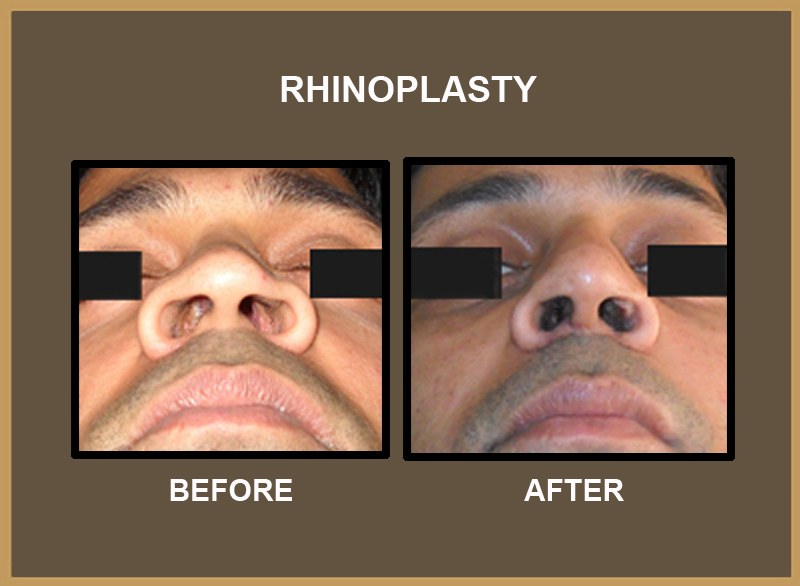Rhinoplasty
OUR RESULTS




Why Us?
Reasons for Rhinoplasty :
People get rhinoplasty to repair their nose after an injury, to correct breathing problems or a birth defect, or because they are unhappy with the appearance of their nose.
- Nasal tip – broad, boxy, drooping, globular.
- Big flared or small nostrils, the base (ala) may be broader.
- Nasal bridge deformity – irregular, crooked, humpy, depressed.
- Root of the nose similarly may be high or low.
- Broad nasal bones.
- Nasal asymmetry.
Functional reasons – difficulty in breathing.
Aesthetic reasons – crooked nose.
Closed Rhinoplasty – the incision is inside the nostril.
Open Rhinoplasty – the incision mark is present in the undersurface of the nose.
Book Appointment
PROCESS BEFORE SURGERY
- A detailed consultation which includes details of your medical history, physical examination, photographs and your expectations alignment.
- Clarify all your doubts.
- It is a good idea to read about the process a bit and discuss in detail. Make sure that you have some if not all the idea as to what exactly are you looking for.
- Tell the doctor about any previous surgery or illness or any sort of allergies.
- Go back after the first consultation and think.
- Make a list of things to clarify and understand and meet the doctor or the team again.
- Please be doubly sure as to what result you are expecting and you and your doctors are at sync and on the same page.
- This will make things easy for you in the post-operative period. It is better to have realistic expectations as there are various limitations of your body as well as of the surgery.
- Some measurements are required.
- The photography for nose is quite standard and consists of photograph from the front, both sides, chin up position( from the down) and both oblique views.
- Usually a CT scan of the nose is ordered to look at the sinuses to look for any sinusitis and the nasal septum for any significant deviation.
- Other investigative reports for medical fitness maybe required prior to the procedure.
- Nasal tip – broad, boxy, drooping, globular.
- Big flared or small nostrils, the base (ala) may be broader.
- Nasal bridge deformity – irregular, crooked, humpy, depressed.
- Root of the nose similarly may be high or low.
- Broad nasal bones.
- Nasal asymmetry.
- Once the problem is identified and a consensus is reached as to what all corrections need to be done, the treatment plan is made by the surgeon.
- Understand the pre-operative instructions – being on empty stomach before surgery, mandatory guardian to accompany, etc.
- Photograph : Pre-operative and post-operative photography helps in comparing and appreciating the results objectively and is helpful for both – you and the surgeon and also removes the scope of ambiguity.
- Report for surgery on time : A little before time is appreciated so that you are relaxed and comfortable.
Frequently Asked Questions
A splint / plaster is applied to the nose for about 1 – 2 weeks. Bruising and swelling settles down in approximately 2-4 weeks after the nose plastic surgery. You will start to appreciate the results in 3 months but the final results take up to about a year.
Like any other surgery, there will be some pain or discomfort after the nose reshaping but it can be minimized and taken care of with prescribed medications. Usually there is swelling around the nose and eyes which settles in a few days.
Usually general anesthesia is used, though in less severe cases, local anesthesia along with sedation can be opted for.
Rhinoplasty is a fine surgery and requires due importance. It can be combined with Sinus surgeries.
If necessary rhinoplasty can also be combined along with – Chin Augmentation, Blepharoplasty, Cheek Implants, Cheek / Mid-Face Lift etc.
